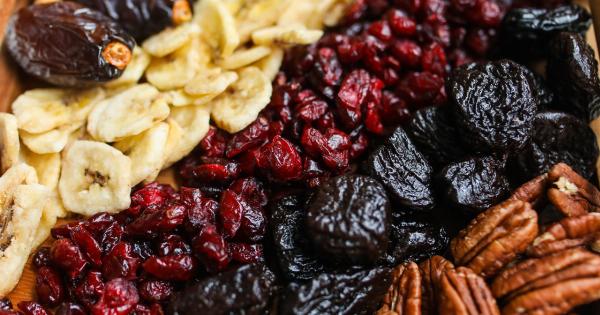B vitamins are a group of water-soluble vitamins that play an essential role in maintaining good health. They work together to help convert food into energy, support a healthy nervous system, and maintain healthy skin, eyes, and hair.
B vitamins are also crucial for the production of red blood cells, which carry oxygen throughout the body.
Functions of B Vitamins in the Body
Vitamin B1 (Thiamine)
Vitamin B1, also known as thiamine, is involved in the metabolism of carbohydrates, which provides energy for the body. It also helps maintain the health of the nervous system, muscles, and heart. Thiamine is found in whole grains, peas, beans, and nuts.
Vitamin B2 (Riboflavin)
Vitamin B2, also known as riboflavin, is important for energy production, the metabolism of fats, carbohydrates and proteins in the body, and maintaining healthy skin and eyes.
Riboflavin is found in dairy products, leafy green vegetables, and fortified cereals.
Vitamin B3 (Niacin)
Vitamin B3, also known as niacin, is involved in the metabolism of carbohydrates, fats, and proteins in the body. It also helps maintain healthy skin, nerves, and digestion. Niacin is found in meat, fish, poultry, and fortified cereals.
Vitamin B5 (Pantothenic Acid)
Vitamin B5, also known as pantothenic acid, plays an important role in energy metabolism and the synthesis of cholesterol, hormones, and red blood cells. It is also important for healthy skin, hair, and eyes.
Pantothenic acid is found in meat, fish, poultry, whole grains, and legumes.
Vitamin B6 (Pyridoxine)
Vitamin B6, also known as pyridoxine, is involved in the metabolism of amino acids, which are the building blocks of protein. It also plays a role in the production of serotonin, a neurotransmitter that regulates mood.
Pyridoxine is found in chickpeas, beef liver, salmon, and potatoes.
Vitamin B7 (Biotin)
Vitamin B7, also known as biotin, is important for the metabolism of fats, carbohydrates, and proteins in the body. It also plays a role in maintaining healthy skin, hair, and nails. Biotin is found in egg yolks, organ meats, nuts, and whole grains.
Vitamin B9 (Folate)
Vitamin B9, also known as folate, is important for cell growth and development, and the production of DNA and RNA. It is especially important during pregnancy to support the growth and development of the baby’s spinal cord and brain.
Folate is found in leafy green vegetables, legumes, and fortified cereals.
Vitamin B12 (Cobalamin)
Vitamin B12, also known as cobalamin, is important for the production of red blood cells and the maintenance of a healthy nervous system. It is also involved in DNA synthesis and helps maintain healthy skin, hair, and nails.
Cobalamin is found in meat, fish, poultry, and dairy products.
Choline
Choline is not technically a B vitamin but is often grouped with the B vitamins because it works closely with them in the body. It is important for cognitive function, particularly memory, and also helps maintain healthy liver function.
Choline is found in eggs, liver, beef, and fish.
Conclusion
B vitamins play a crucial role in maintaining good health. They help convert food into energy, support a healthy nervous system, and maintain healthy skin, eyes, and hair.
They are also crucial for the production of red blood cells, which carry oxygen throughout the body. A balanced diet that includes a variety of foods rich in B vitamins can help ensure that the body is getting the nutrients it needs to function optimally.





























